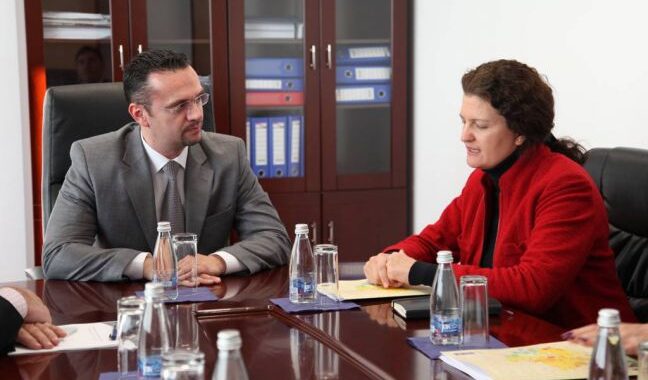

This analysis assesses the extent and the reasons for visa refusals for the citizens of Kosovo. The document in question presents the inaccuracy of statistics on visa refusals that was presented by the European Commission’s report on visa liberalization, published in February this year, in comparison to the statistics of member countries of Schengen zone, respectively statistics of Germany, Italy and Finland.
The findings of this report are that “statistics for visa refusals in Kosovo for short-term Schengen visas, provided by DG of Internal Affairs of EC, shows a large discrepancy when compared to the figures provided by the embassies of member states. When the data for extent of visa refusals are compared with those from Eurostat, it was concluded that the Eurostat statistics do not represent the true extent of visa refusals in Kosovo. ”
Furthermore, the document in question analyzes the information published by eurostat and for comparative reasons, three EU countries were taken as samples, namely Finland, Italy and Germany and as a result it was concluded that Eurostat report shows that Finland has declined 99.2% of Schengen Visas of category A and C. However, the analysis of the statistics provided by the Finnish Embassy in Kosovo, shows that the Embassy has received 916 visa applications from which 776 A, C and LTV visa are definitively approved. This means that the actual rate of visa refusals by the Embassy of Finland is 15.3%, and not 99.2%.
Similarly, the data provided by Italian Embassy show that this embassy has received 9,942 visa applications for the first half of 2013, of which 7,843 were approved, which represents a visa refusal rate of 21.11%. During the same period from last year, this embassy has received 8,473 applications and issued 6,518 visas, which represents the rejection rate of 23.07%. Data comparison shows a reduction in rejection of visa applications.
The situation with the data of the German embassy is similar. According to the Eurostat data, it seems that Germany has rejected 79.24% of visa applications, but neither these figures reflect the real situation. According to data provided by the German Embassy, the refusal rate of the applications for C visas was only 18%.
In the end, the document in question issues several recommendations for the Government of Kosovo, for the countries that issue Schengen visas, for visa applicants, for media and civil society organizations.
This is also a good example of cooperation with UNDP, with whom in 2014 we will have even closer cooperation by implementing projects which we have already discussed and plan to develop over the next year.
Last modified: August 15, 2022











… [Trackback]
[…] Info to that Topic: integrimievropian.rks-gov.net/en/is-published-the-analysis-on-study-on-extent-of-visa-refusals-in-kosovo/ […]
… [Trackback]
[…] Information to that Topic: integrimievropian.rks-gov.net/en/is-published-the-analysis-on-study-on-extent-of-visa-refusals-in-kosovo/ […]
… [Trackback]
[…] Find More Info here to that Topic: integrimievropian.rks-gov.net/en/is-published-the-analysis-on-study-on-extent-of-visa-refusals-in-kosovo/ […]
… [Trackback]
[…] Read More to that Topic: integrimievropian.rks-gov.net/en/is-published-the-analysis-on-study-on-extent-of-visa-refusals-in-kosovo/ […]
Great, thanks for sharing this post.Really thank you! Awesome.
… [Trackback]
[…] Information to that Topic: integrimievropian.rks-gov.net/en/is-published-the-analysis-on-study-on-extent-of-visa-refusals-in-kosovo/ […]